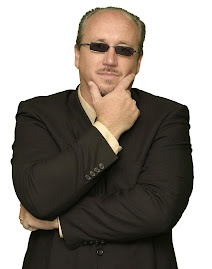So Aristotle believes you are good because you do good things, the more good things you do the better person you would be; therefore, ethics is simply choosing the good over the bad.
Hobbes and Rousseau had some VERY different ideas of where ethics come from. Hobbes said that without the civilizing effect of societal pressure we would be poor, nasty, brutish, and live in continual fear. Rousseau was a little more optimistic because he called us "noble savages" who lived only for SELF and a desire to fulfill only our immediate needs. Hobbes saw civilization as the only means to taming the savage beast and that includes handing some of our "rights" as individuals over to an absolute authority (he called leviathon). This social contract is the only thing keeping us safe and sane. Rousseau bought into the social contract idea but believed that the only way for people to overcome their savagery is for them to accept the "general will" of the public as expressed in government.
The question these two are answering is this: "Is monstrous, unethical behavior natural or is it created by society?" Is society or the will of the masses the savior or the problem as far as ethics is concerned? In order to fix us do we need to fix society first? If we have a perfect government will we have perfect people?
The Bible tells us that we are corrupted from birth and will always have that bent towards doing the wrong thing. We must constantly struggle against that bent.
Growing up on the farm I remember trying to get the pickup truck out of a rut that was hard caked into the ground. It was a constant battle to get the wheels out of the rut and onto the smoother surface. The steering wheel fought me the whole time and I really didn't need to drive if I kept in the rut since the rut steered for me. That is like us and our nature. We are in this rut that keeps pulling us back in, it's easier, and even a kind of autopilot to just do what our nature tells us to do. To be an ethical person takes hard work, fighting against the rut and never letting go of the steering wheel.
Society and government is a reflection of the individuals that make up that society. When we are good people, fighting to be even better we will have a better and better society. Society doesn't civilize us as Hobbes claims, nor does society tell us what is ethical by majority vote as Rousseau claims. WE are society and what we do is echoed and even amplified in our society/government.
So choose wisely.
Friday, November 12, 2010
Where do Ethics come From? Part 2
Labels:
decision making,
ethics,
God things,
life issues,
philosophy
Subscribe to:
Post Comments (Atom)

No comments:
Post a Comment